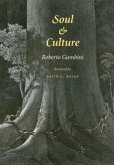Mitchell G. AshHolism and the Quest for Objectivity
Gestalt Psychology in German Culture, 1890 1967
Holism and the Quest for Objectivity
Herausgeber: Ash, Mitchell G.; Woodward, William R.
Mitchell G. AshHolism and the Quest for Objectivity
Gestalt Psychology in German Culture, 1890 1967
Holism and the Quest for Objectivity
Herausgeber: Ash, Mitchell G.; Woodward, William R.
- Broschiertes Buch
- Merkliste
- Auf die Merkliste
- Bewerten Bewerten
- Teilen
- Produkt teilen
- Produkterinnerung
- Produkterinnerung
Based on exhaustive research in primary sources, this study examines the multiple social and intellectual contexts of Gestalt theory from 1890 to 1967. 10 photos. Diagrams.
Andere Kunden interessierten sich auch für
![Soul and Culture, Volume 9 Soul and Culture, Volume 9]() Roberto GambiniSoul and Culture, Volume 926,99 €
Roberto GambiniSoul and Culture, Volume 926,99 €![Mind, Culture, and Activity Mind, Culture, and Activity]() Michael Cole / Yrjo Engestrom / A. Vasquez (eds.)Mind, Culture, and Activity145,99 €
Michael Cole / Yrjo Engestrom / A. Vasquez (eds.)Mind, Culture, and Activity145,99 €![A Diagnostic Analysis of the Casebooks of Ticehurst House Asylum, 1845 1890 A Diagnostic Analysis of the Casebooks of Ticehurst House Asylum, 1845 1890]() Trevor H. TurnerA Diagnostic Analysis of the Casebooks of Ticehurst House Asylum, 1845 189050,99 €
Trevor H. TurnerA Diagnostic Analysis of the Casebooks of Ticehurst House Asylum, 1845 189050,99 €![Archetype, Culture, and the Individual in Education Archetype, Culture, and the Individual in Education]() Clifford MayesArchetype, Culture, and the Individual in Education52,99 €
Clifford MayesArchetype, Culture, and the Individual in Education52,99 €![Geopolitics, the New German Science Geopolitics, the New German Science]() Andrew GyorgyGeopolitics, the New German Science35,99 €
Andrew GyorgyGeopolitics, the New German Science35,99 €![German-English Dictionary of Psychological Terms German-English Dictionary of Psychological Terms]() German-English Dictionary of Psychological Terms33,99 €
German-English Dictionary of Psychological Terms33,99 €![Viljans Sjukdomar (1890) Viljans Sjukdomar (1890)]() Theodule RibotViljans Sjukdomar (1890)28,99 €
Theodule RibotViljans Sjukdomar (1890)28,99 €-
-
-
Based on exhaustive research in primary sources, this study examines the multiple social and intellectual contexts of Gestalt theory from 1890 to 1967. 10 photos. Diagrams.
Hinweis: Dieser Artikel kann nur an eine deutsche Lieferadresse ausgeliefert werden.
Hinweis: Dieser Artikel kann nur an eine deutsche Lieferadresse ausgeliefert werden.
Produktdetails
- Produktdetails
- Verlag: Cambridge University Press
- Seitenzahl: 528
- Erscheinungstermin: 28. April 2007
- Englisch
- Abmessung: 229mm x 152mm x 29mm
- Gewicht: 756g
- ISBN-13: 9780521646277
- ISBN-10: 0521646278
- Artikelnr.: 22353970
- Herstellerkennzeichnung
- Libri GmbH
- Europaallee 1
- 36244 Bad Hersfeld
- gpsr@libri.de
- Verlag: Cambridge University Press
- Seitenzahl: 528
- Erscheinungstermin: 28. April 2007
- Englisch
- Abmessung: 229mm x 152mm x 29mm
- Gewicht: 756g
- ISBN-13: 9780521646277
- ISBN-10: 0521646278
- Artikelnr.: 22353970
- Herstellerkennzeichnung
- Libri GmbH
- Europaallee 1
- 36244 Bad Hersfeld
- gpsr@libri.de
List of illustrations
Preface
Introduction
Part I. The Social and Intellectual Settings: 1. The academic environment and the establishment of experimental psychology
2. Carl Stumpf and the training of scientists in Berlin
3. The philosophers' protest
4. Making a science of mind: styles of reasoning in sensory physiology and experimental psychology
5. Challenging positivism: revised philosophies of mind and science
6. The Gestalt debate: from Goethe to Ehrenfels and beyond
Part II. The Emergence of Gestalt Theory, 1910-1920: 7. Max Wertheimer, Kurt Koffka and Wolfgang Köhler
8. Laying the conceptual and research foundations
9. Reconstructing perception and behaviour
10. Insights and confirmations in animals: Köhler on Tenerife
11. The step to natural philosophy: Die Physischen Gestalten
12. Wertheimer in times of war and revolution: science for the military and toward a new logic
Part III. The Berlin School in Weimar Germany: 13. Establishing the Berlin School
14. Research styles and results
15. Theory's growth and limits: development, open systems, self and society
16. Variations in theory and practice: Kurt Lewin, Adhemar Gelb and Kurt Goldstein
17. The encounter with Weimar culture
18. The reception among German-speaking psychologists
Part IV. Under Nazism and After: Survival and Adaptation: 19. Persecution, emigration and Köhler's resistance in Berlin
20. Two students adapt: Wolfgang Metzger and Kurt Gottschaldt
21. Research, theory and system: continuity and change
22. The post-war years
Appendices
List of unpublished sources
Notes
Index.
Preface
Introduction
Part I. The Social and Intellectual Settings: 1. The academic environment and the establishment of experimental psychology
2. Carl Stumpf and the training of scientists in Berlin
3. The philosophers' protest
4. Making a science of mind: styles of reasoning in sensory physiology and experimental psychology
5. Challenging positivism: revised philosophies of mind and science
6. The Gestalt debate: from Goethe to Ehrenfels and beyond
Part II. The Emergence of Gestalt Theory, 1910-1920: 7. Max Wertheimer, Kurt Koffka and Wolfgang Köhler
8. Laying the conceptual and research foundations
9. Reconstructing perception and behaviour
10. Insights and confirmations in animals: Köhler on Tenerife
11. The step to natural philosophy: Die Physischen Gestalten
12. Wertheimer in times of war and revolution: science for the military and toward a new logic
Part III. The Berlin School in Weimar Germany: 13. Establishing the Berlin School
14. Research styles and results
15. Theory's growth and limits: development, open systems, self and society
16. Variations in theory and practice: Kurt Lewin, Adhemar Gelb and Kurt Goldstein
17. The encounter with Weimar culture
18. The reception among German-speaking psychologists
Part IV. Under Nazism and After: Survival and Adaptation: 19. Persecution, emigration and Köhler's resistance in Berlin
20. Two students adapt: Wolfgang Metzger and Kurt Gottschaldt
21. Research, theory and system: continuity and change
22. The post-war years
Appendices
List of unpublished sources
Notes
Index.
List of illustrations
Preface
Introduction
Part I. The Social and Intellectual Settings: 1. The academic environment and the establishment of experimental psychology
2. Carl Stumpf and the training of scientists in Berlin
3. The philosophers' protest
4. Making a science of mind: styles of reasoning in sensory physiology and experimental psychology
5. Challenging positivism: revised philosophies of mind and science
6. The Gestalt debate: from Goethe to Ehrenfels and beyond
Part II. The Emergence of Gestalt Theory, 1910-1920: 7. Max Wertheimer, Kurt Koffka and Wolfgang Köhler
8. Laying the conceptual and research foundations
9. Reconstructing perception and behaviour
10. Insights and confirmations in animals: Köhler on Tenerife
11. The step to natural philosophy: Die Physischen Gestalten
12. Wertheimer in times of war and revolution: science for the military and toward a new logic
Part III. The Berlin School in Weimar Germany: 13. Establishing the Berlin School
14. Research styles and results
15. Theory's growth and limits: development, open systems, self and society
16. Variations in theory and practice: Kurt Lewin, Adhemar Gelb and Kurt Goldstein
17. The encounter with Weimar culture
18. The reception among German-speaking psychologists
Part IV. Under Nazism and After: Survival and Adaptation: 19. Persecution, emigration and Köhler's resistance in Berlin
20. Two students adapt: Wolfgang Metzger and Kurt Gottschaldt
21. Research, theory and system: continuity and change
22. The post-war years
Appendices
List of unpublished sources
Notes
Index.
Preface
Introduction
Part I. The Social and Intellectual Settings: 1. The academic environment and the establishment of experimental psychology
2. Carl Stumpf and the training of scientists in Berlin
3. The philosophers' protest
4. Making a science of mind: styles of reasoning in sensory physiology and experimental psychology
5. Challenging positivism: revised philosophies of mind and science
6. The Gestalt debate: from Goethe to Ehrenfels and beyond
Part II. The Emergence of Gestalt Theory, 1910-1920: 7. Max Wertheimer, Kurt Koffka and Wolfgang Köhler
8. Laying the conceptual and research foundations
9. Reconstructing perception and behaviour
10. Insights and confirmations in animals: Köhler on Tenerife
11. The step to natural philosophy: Die Physischen Gestalten
12. Wertheimer in times of war and revolution: science for the military and toward a new logic
Part III. The Berlin School in Weimar Germany: 13. Establishing the Berlin School
14. Research styles and results
15. Theory's growth and limits: development, open systems, self and society
16. Variations in theory and practice: Kurt Lewin, Adhemar Gelb and Kurt Goldstein
17. The encounter with Weimar culture
18. The reception among German-speaking psychologists
Part IV. Under Nazism and After: Survival and Adaptation: 19. Persecution, emigration and Köhler's resistance in Berlin
20. Two students adapt: Wolfgang Metzger and Kurt Gottschaldt
21. Research, theory and system: continuity and change
22. The post-war years
Appendices
List of unpublished sources
Notes
Index.








